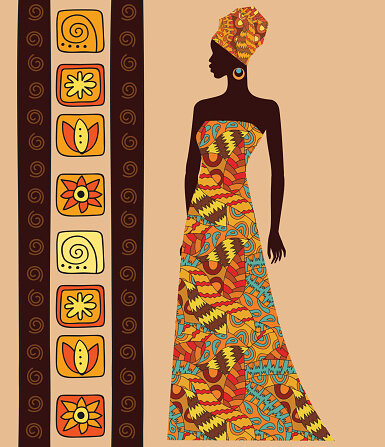Erreur de format d'e-mail
emailCannotEmpty
emailDoesExist
pwdLetterLimtTip
inconsistentPwd
pwdLetterLimtTip
inconsistentPwd

News
News

African Elegance: Black Dress Styles for Special Celebrations
Introduction:
In the vibrant tapestry of African cultures, the expression of identity and celebration is woven seamlessly into the fabric of daily life. One cannot ignore the exquisite allure of "black African dress styles," particularly during special occasions, where attire becomes a symbolic manifestation of tradition, history, and communal joy.
Historical Roots and Cultural Significance:
Delving into the roots of African special occasion attire, we find a rich history shaped by diverse cultures across the continent. The traditional elegance of these garments, rooted in centuries-old practices, transcends time, connecting the past and present. The term "black African dress styles" encompasses a kaleidoscope of unique clothing traditions, each telling a story of cultural evolution.
Regional Diversity in Festive Attire:
From the resplendent Kente cloth of West Africa to the intricate beadwork of the Maasai in East Africa, the diversity of black African dress styles for special occasions is a testament to the continent's multifaceted cultural heritage. Synthesizing traditional elements with contemporary aesthetics, these garments reflect both regional pride and a global fusion of fashion.
The Fusion of Tradition and Modern Trends:
In the ever-evolving landscape of fashion, African designers are masterfully blending tradition with modernity. The vibrant hues of Ankara prints and the graceful draping of Gele headwraps are now gracing international runways. Influential designers, inspired by the cultural kaleidoscope, are creating pieces that harmonize with global fashion trends, thereby enhancing the visibility and acceptance of "black African dress styles" on a worldwide stage.

Accessorizing African Elegance:
African special occasion attire is incomplete without the intricate accessories that accompany it. Beads, a symbol of identity and social status, are meticulously incorporated into garments, creating a symphony of color and meaning. The craftsmanship of jewellery and headwraps adds an extra layer of cultural depth to the ensemble, underscoring the importance of each element in the broader context of celebration.
Men's Fashion Making a Statement:
While women's attire often steals the spotlight, the realm of African men's special occasion fashion is equally captivating. Traditional attire for men, adorned with symbolic elements, stands as a testament to the significance of rituals and ceremonies in African societies. In contemporary settings, men's fashion is evolving, with influencers and celebrities redefining the narrative and setting new trends.
Special Occasion Dress Codes Across Celebrations:
The diversity of African celebrations calls for a nuanced approach to attire. Weddings, festivals, religious ceremonies, and milestone celebrations each carry their own set of dress codes, providing an opportunity for individuals to express their cultural identity with grace and pride. Understanding the significance of specific garments in these contexts adds depth to the appreciation of "black African dress styles."
Sustainability and Ethical Practices:
In recent years, there has been a growing awareness of the environmental and ethical implications of fashion. African designers are taking the lead in embracing sustainable practices, using eco-friendly materials and championing ethical production methods. The integration of these principles into "black African dress styles" not only aligns with global sustainability goals but also fosters a deeper connection with the roots of African culture.
Conclusion: Celebrating Diversity Through Attire
In the tapestry of life's celebrations, "black African dress styles" stand out as vibrant threads, weaving together tradition, history, and contemporary flair. As we appreciate the significance of attire on special occasions, it becomes evident that these garments are not just fabrics; they are carriers of culture, telling stories that transcend borders and generations. Embracing this diversity fosters a global celebration of African culture in all its resplendent forms.

